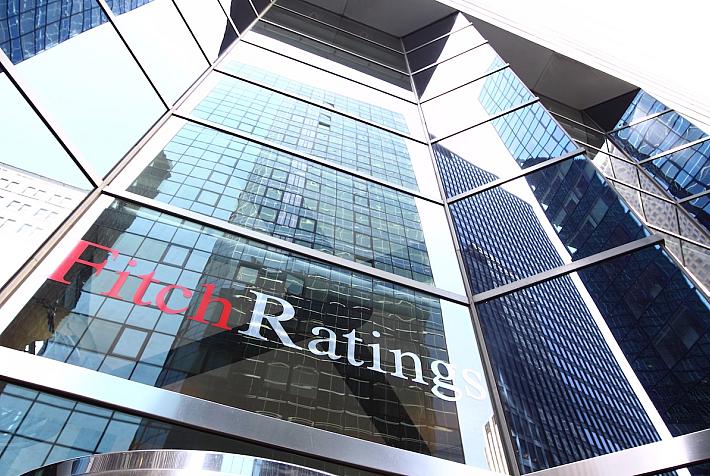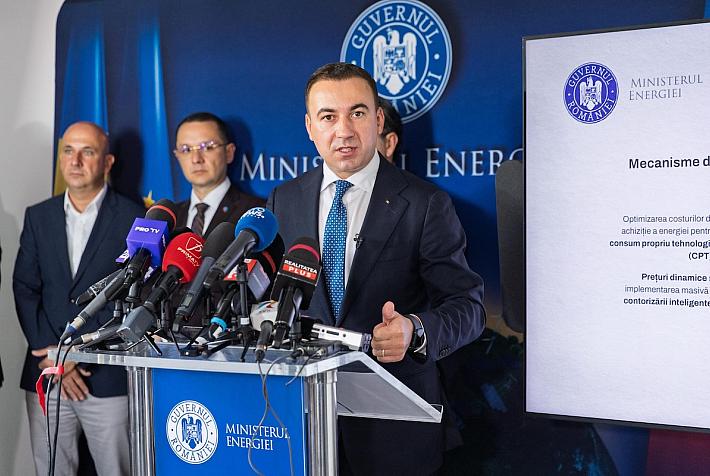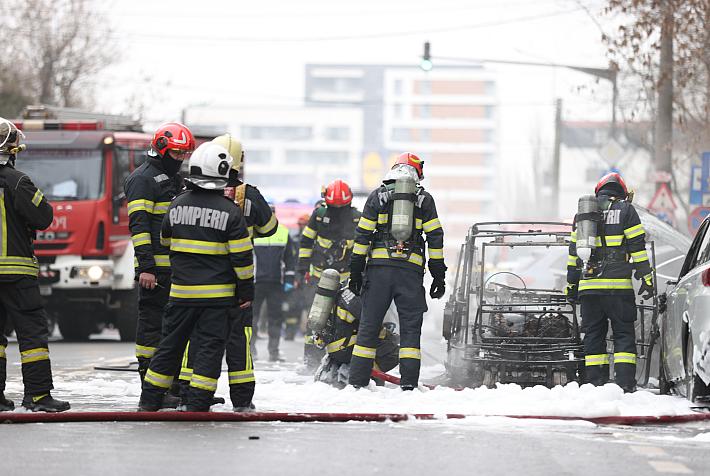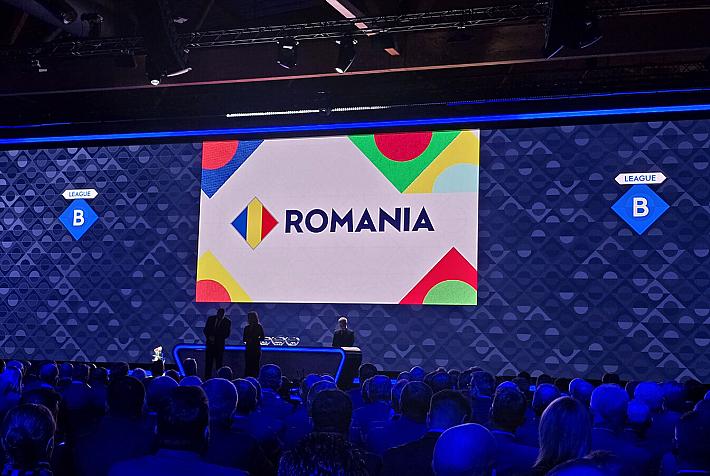Who are the women at the forefront of Romanian politics and justice?
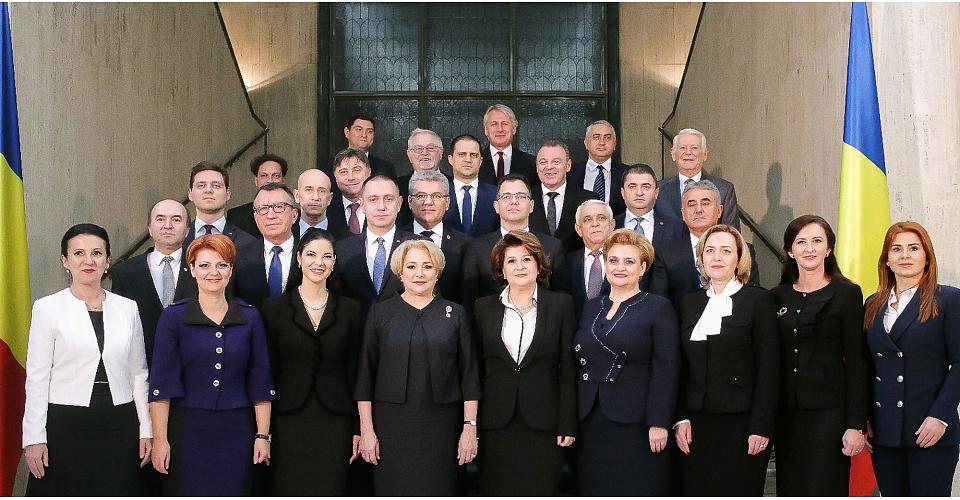
Women in politics have been more successful in making their way to top positions in Romania, in recent years, than those in business. Almost one in five (19%) members of the Romanian Parliament are now women and a third of the ministers in the current government, including the prime minister, are women. By comparison, only 11% of the board member positions in local companies are held by women.
Women are also well represented in top positions in the justice system. The majority of judges at Romania's High Court of Cassation and Justice are women.
Here’s some of today’s most powerful women in Romanian politics and the justice system:
Women in the Government
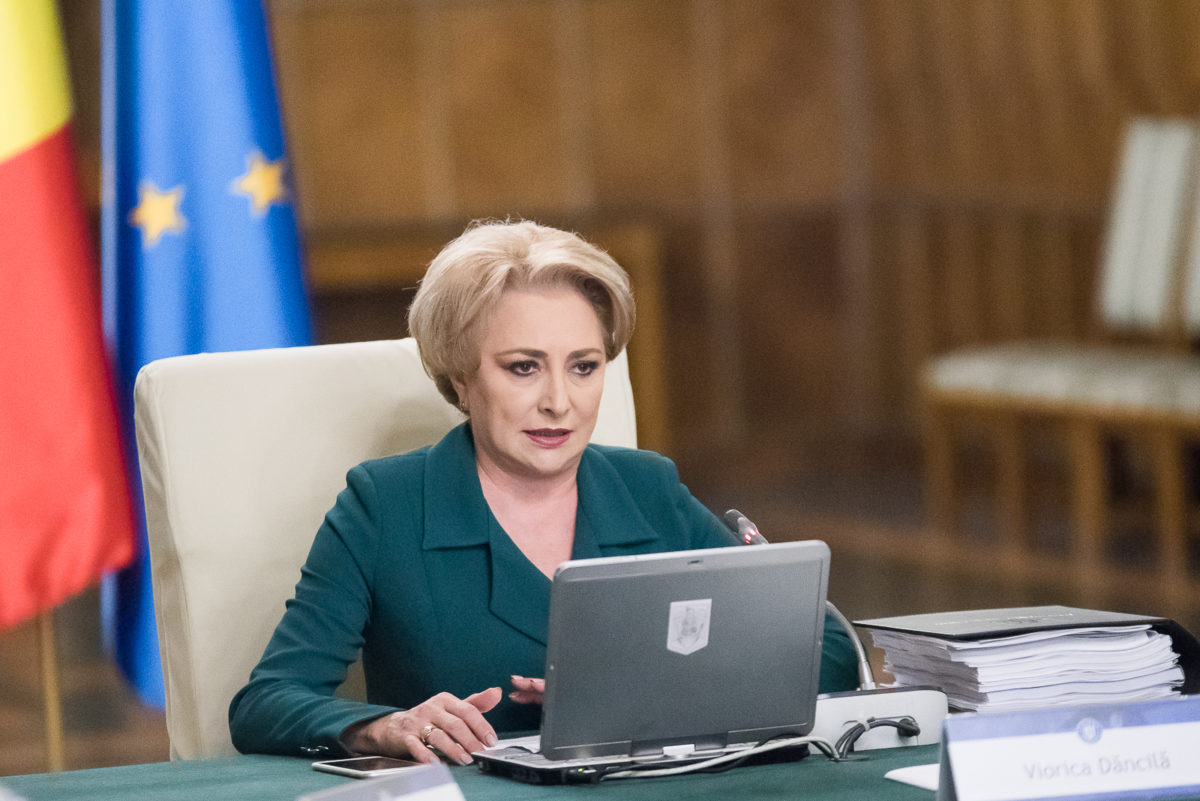 Viorica Dancila – prime minister of Romania
Viorica Dancila – prime minister of Romania
Viorica Dancila is Romania’s first woman prime minister, taking over the office in January this year. She has been a member of the ruling Social Democratic Party (PSD) since 1996, and has held several public positions, such as local councilor in Videle, county council member in Teleorman, before becoming a member of the European Parliament in 2009. She has also been the president of PSD’s women organization since October 2015. Between 1989 and 2009 she worked as a teacher at the Videle High School and then as an engineer at oil and gas group OMV Petrom. Find her CV here.
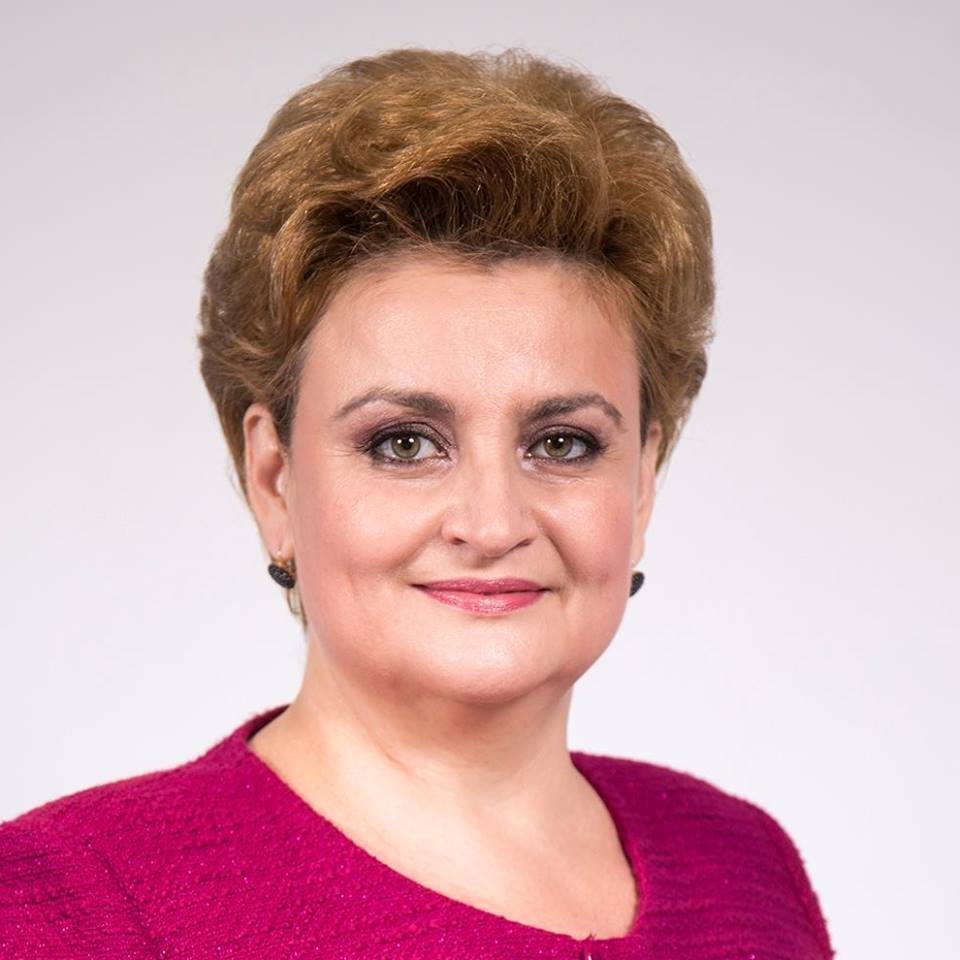 The Government led by Viorica Dancila has eight women ministers. Among them, Gratiela Gavrilescu has one of the most important roles, being deputy prime minister and minister of environment. She is a member of PSD’s junior ruling coalition partner ALDE. She was previously minister of environment between December 2014 and November 2015, and minister for the relation with the Parliament from January 2017 to April 2017. Between 1990 and 2004, she has worked as engineer at Arpacor SA, and then took over the general manager position at Arparom Bucov (1996-2004). In 2004 she was appointed deputy mayor of the city of Ploiesti, a position she held until 2007. Find out more from her CV.
The Government led by Viorica Dancila has eight women ministers. Among them, Gratiela Gavrilescu has one of the most important roles, being deputy prime minister and minister of environment. She is a member of PSD’s junior ruling coalition partner ALDE. She was previously minister of environment between December 2014 and November 2015, and minister for the relation with the Parliament from January 2017 to April 2017. Between 1990 and 2004, she has worked as engineer at Arpacor SA, and then took over the general manager position at Arparom Bucov (1996-2004). In 2004 she was appointed deputy mayor of the city of Ploiesti, a position she held until 2007. Find out more from her CV.
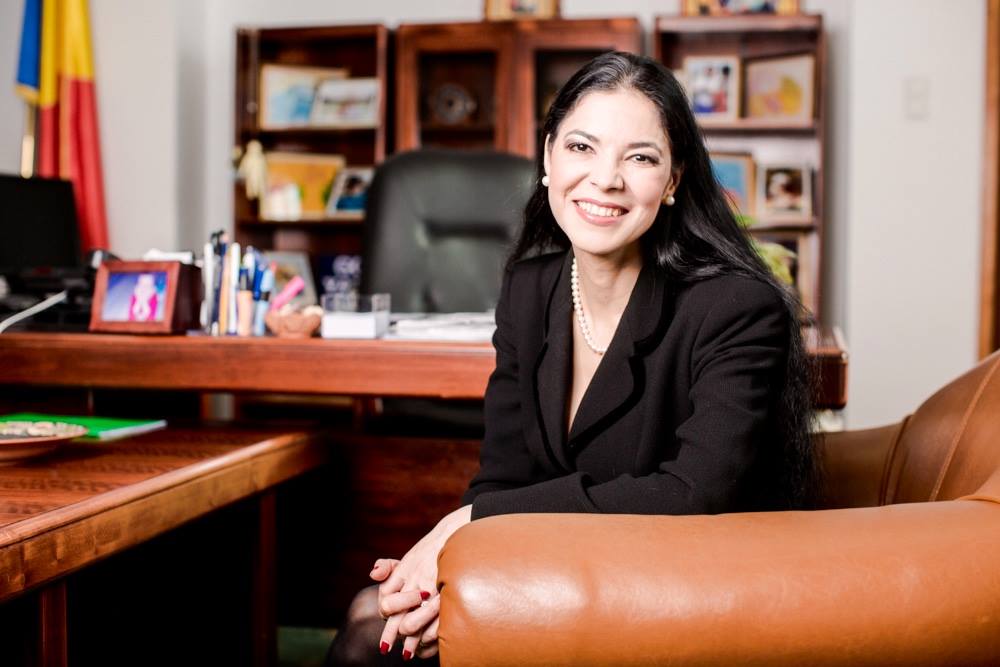 Ana Birchall is also in a top position in the Romanian Government, being the deputy prime minister in charge of the implementation of Romania’s strategic partnerships. She is also a lawyer, graduating from the Faculty of Law of the University of Bucharest and the Faculty of Law and International Relations of the “Nicolae Titulescu” University in 1996. She continued her studies at Yale Law School, Yale University, USA. She made her debut in politics and administration at the Ministry of Foreign Affairs and the Commission on Foreign Affairs of the Senate of Romania in 2003. Over the past few years, she has also been an advisor to the prime minister, an MP, and minister delegate for European affairs. Find her full CV here.
Ana Birchall is also in a top position in the Romanian Government, being the deputy prime minister in charge of the implementation of Romania’s strategic partnerships. She is also a lawyer, graduating from the Faculty of Law of the University of Bucharest and the Faculty of Law and International Relations of the “Nicolae Titulescu” University in 1996. She continued her studies at Yale Law School, Yale University, USA. She made her debut in politics and administration at the Ministry of Foreign Affairs and the Commission on Foreign Affairs of the Senate of Romania in 2003. Over the past few years, she has also been an advisor to the prime minister, an MP, and minister delegate for European affairs. Find her full CV here.
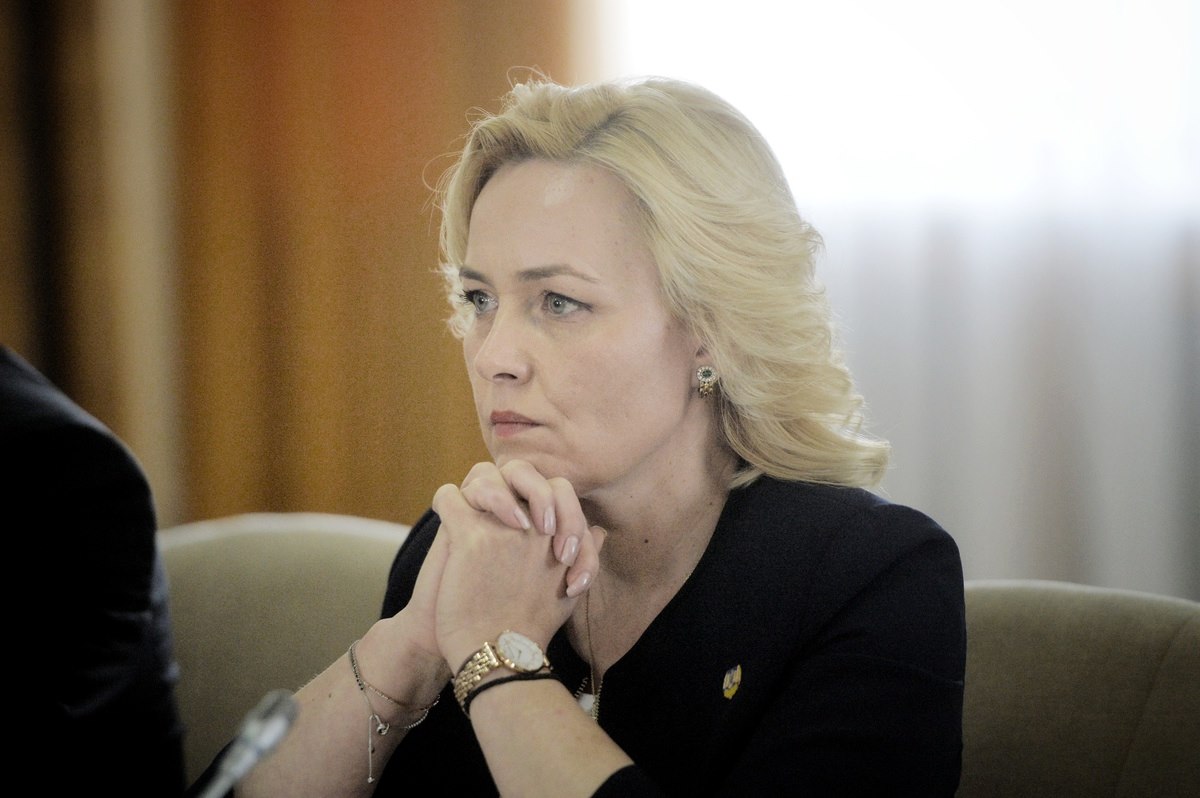 Carmen Dan is the person in charge of one of the most important portfolios in the Romanian government, being the minister of interior. She is also a member of PSD, and was a subprefect and a prefect of Teleorman county in the period June 2012 – October 2016. She then became a senator in the Romanian Parliament and interior minister in the last three PSD governments. Between 1990 and 2012, she worked at the school in Videle, and local Agricola and Raiffeisen banks, and at Teleorman County Council. Her CV is available here.
Carmen Dan is the person in charge of one of the most important portfolios in the Romanian government, being the minister of interior. She is also a member of PSD, and was a subprefect and a prefect of Teleorman county in the period June 2012 – October 2016. She then became a senator in the Romanian Parliament and interior minister in the last three PSD governments. Between 1990 and 2012, she worked at the school in Videle, and local Agricola and Raiffeisen banks, and at Teleorman County Council. Her CV is available here.
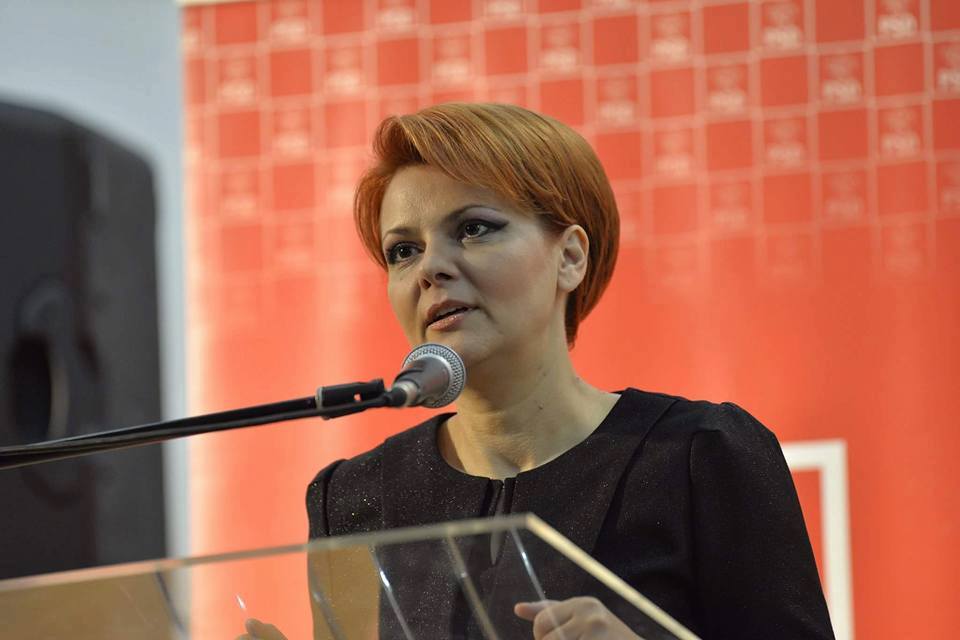 Lia-Olguta Vasilescu is the minister of labor in the government led by Viorica Dancila, being one of the ministers with the greatest political experience. In 1991 she became a founding member of the Great Romanian Party (PRM), which she left in late-2007 to join PSD. Between 2008 and 2012 she was a member of the Senate, and in 2012 took over as mayor of Craiova, a position she held until 2016 when she became a Chamber of Deputies member. She was appointed labor minister in January 2017, in the government led by Sorin Grindeanu, and kept this position in the next two governments sworn in in the past year. Her CV can be found here.
Lia-Olguta Vasilescu is the minister of labor in the government led by Viorica Dancila, being one of the ministers with the greatest political experience. In 1991 she became a founding member of the Great Romanian Party (PRM), which she left in late-2007 to join PSD. Between 2008 and 2012 she was a member of the Senate, and in 2012 took over as mayor of Craiova, a position she held until 2016 when she became a Chamber of Deputies member. She was appointed labor minister in January 2017, in the government led by Sorin Grindeanu, and kept this position in the next two governments sworn in in the past year. Her CV can be found here.
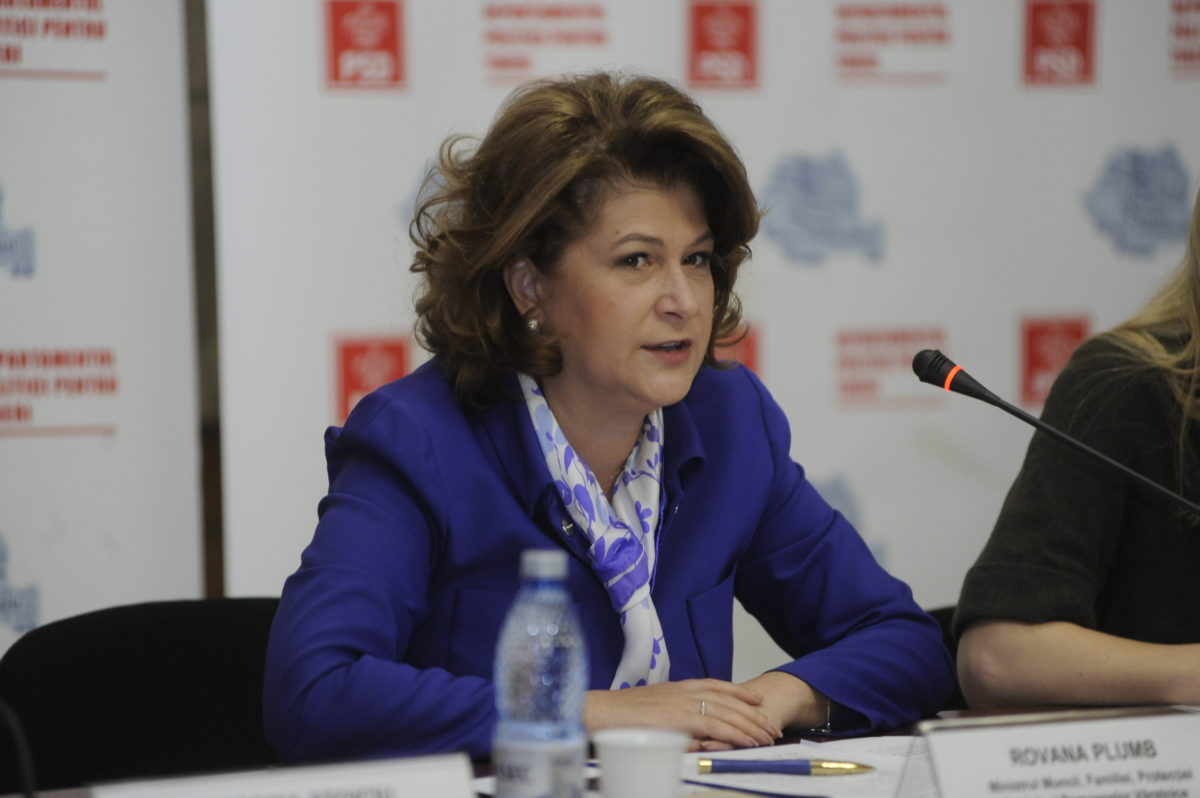 Rovana Plumb, the current EU funds minister, also has an important political experience. She was in charge of several other important portfolios in previous governments, being environment minister between May 2012 and March 2014, labor minister between March 2014 and November 2015, and minister delegate for EU funds from February to October 2017. She has also been a member of the Romanian Parliament (2005-2007 and 2015-2017), and an MEP between 2007 and 2012. Her full CV is available here.
Rovana Plumb, the current EU funds minister, also has an important political experience. She was in charge of several other important portfolios in previous governments, being environment minister between May 2012 and March 2014, labor minister between March 2014 and November 2015, and minister delegate for EU funds from February to October 2017. She has also been a member of the Romanian Parliament (2005-2007 and 2015-2017), and an MEP between 2007 and 2012. Her full CV is available here.
Sorina Pintea took over as minister of health in the minister led by Viorinca Danica in January this year, before that being the manager of a local hospital (find her CV here). The other two women ministers in the current Romanian Government are Ioana Bran – minister of youth and sports (CV available here) and Natalia-Elena Intotero – minister minister for Romanians everywhere (CV here).
Other powerful women in politics
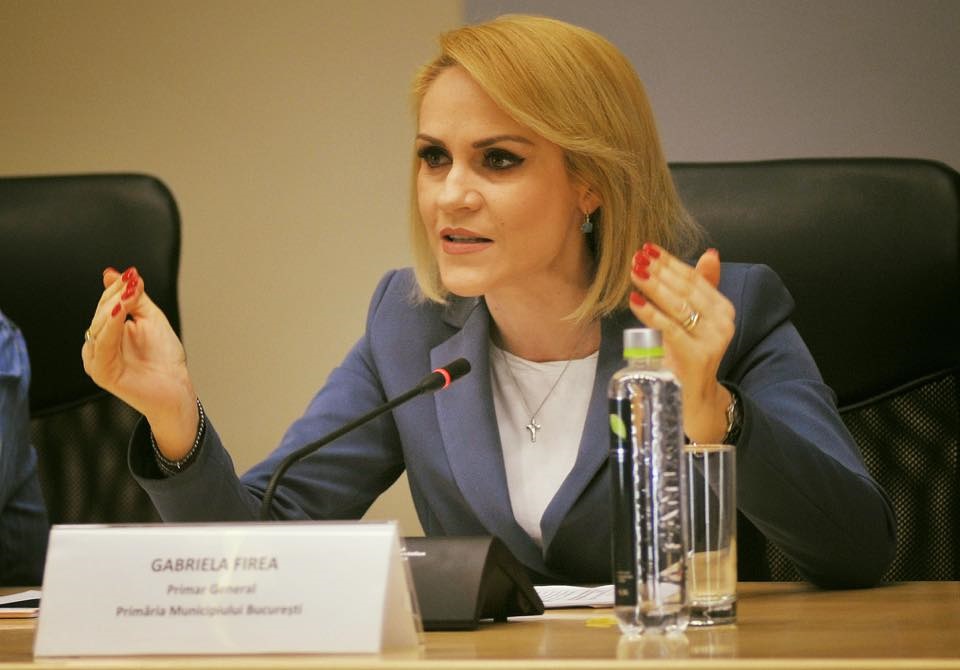 Gabriela Firea – general mayor of Bucharest
Gabriela Firea – general mayor of Bucharest
Gabriela Firea is Bucharest’s first woman mayor, taking over this position in June 2016, when she won the elections with a high score. She is also a member of PSD, and had been a journalist before entering politics, working in radio, newspapers and television. Firea is married to Florentin Pandele, the current mayor of Voluntari, a town near Bucharest. Find more about her and her projects as mayor of Bucharest on her official Facebook page here.
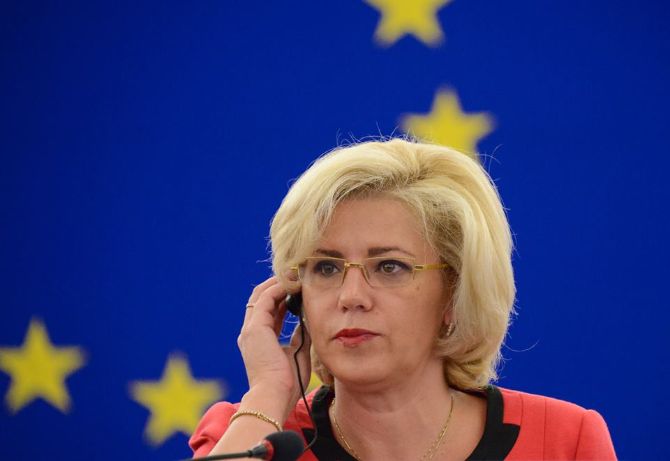
Corina Cretu – European Commissioner for Regional Policy
Corina Cretu has been European Commissioner for Regional Policy since 2014. From this position, she has to identify how EU structural and investment funds can be better geared towards creating jobs and growth, to protect the EU budget from fraud by verifying that regional funds are spent according to the rules, and to monitor the effectiveness of spending programmes to create regional growth. Cretu is also a vice-president of PSD, and served as vice-president of the European Parliament in 2014 and as MEP between 2007 and 2014, among others. More information about Corina Cretu is available here.
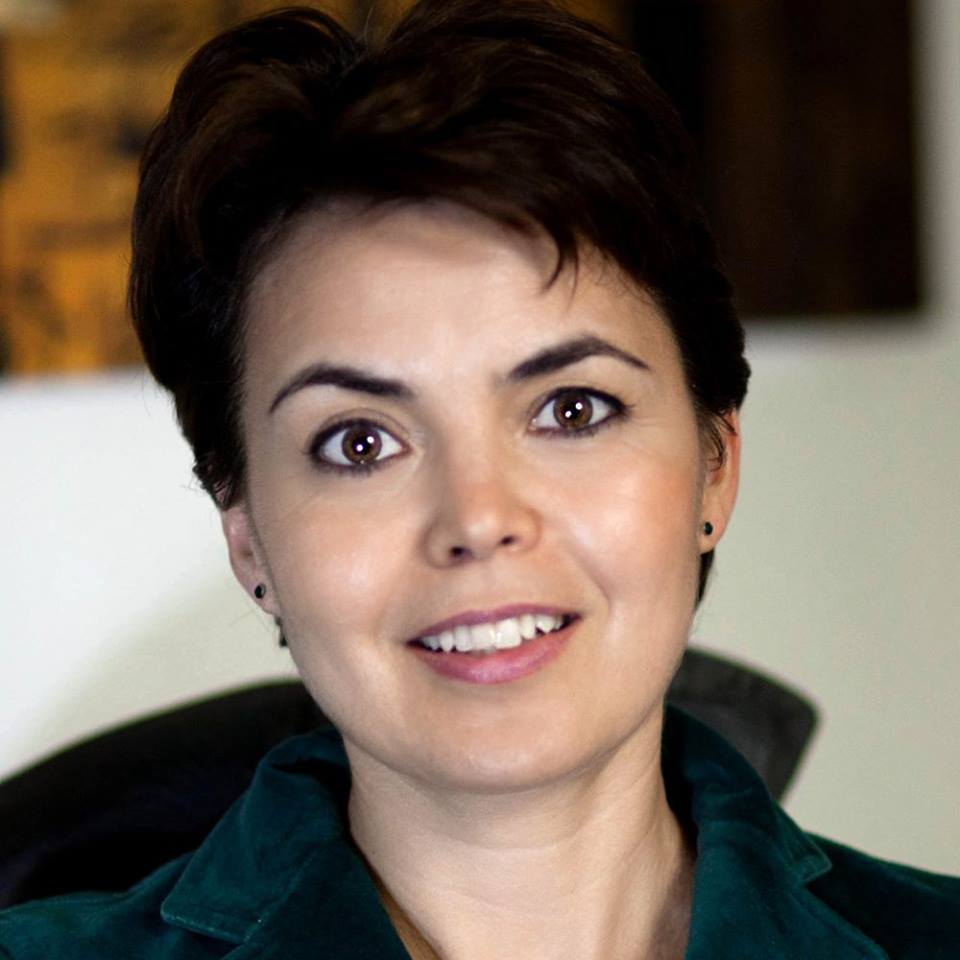 Angela Cristea - Head of the Representation of the European Commission in Romania
Angela Cristea - Head of the Representation of the European Commission in Romania
Angela Cristea took over as head of the EC representation in Romania in January 2014. With over 20 years of experience in institutional communication management, she worked in Romania, Turkey and Egypt, and after 2010, at the European Commission in Brussels. She studied economics, political sciences, and European affairs.
Powerful women in the judiciary
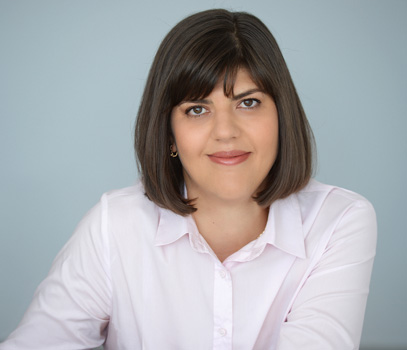 Laura Codruta Kovesi – chief prosecutor at the National Anticorruption Department (DNA)
Laura Codruta Kovesi – chief prosecutor at the National Anticorruption Department (DNA)
She has been the chief prosecutor of DNA since 2013. She got the second three-year mandate for this position in 2016. Before being appointed DNA chief prosecutor, she was the Prosecutor General of Romania between 2006 and 2012, leading the Prosecutor General’s Office attached to the High Court of Cassation and Justice. Upon appointment in 2006, Kovesi was the first woman and the youngest Prosecutor General in Romania's history. Her CV is available here.
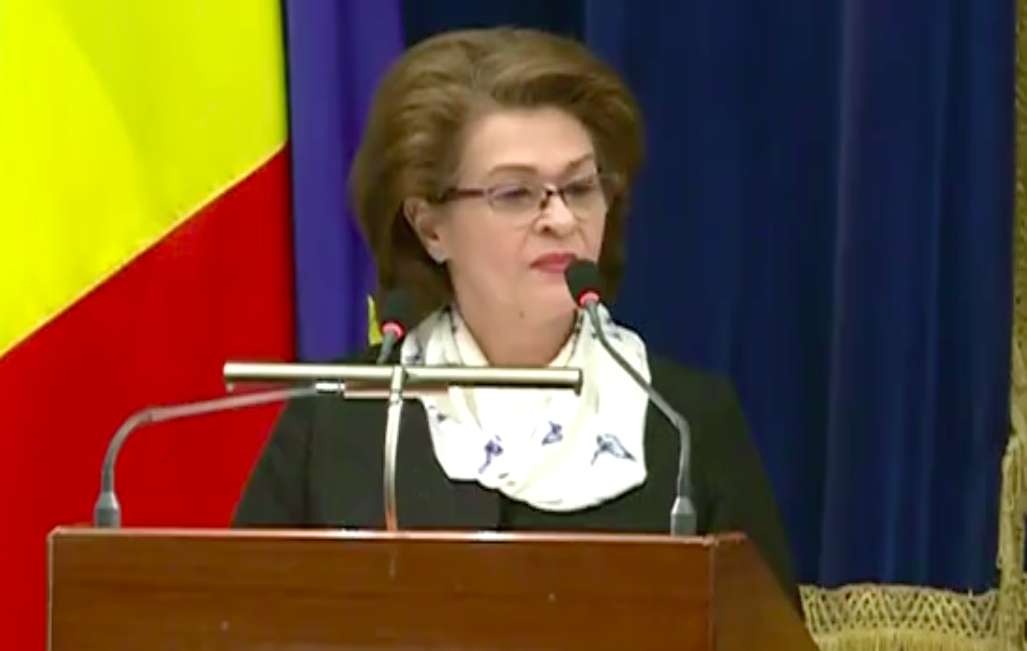 Cristina Tarcea - president of the High Court of Cassation and Justice
Cristina Tarcea - president of the High Court of Cassation and Justice
Cristina Tarcea was appointed president of the High Court of Cassation and Justice (ICCJ) in September 2016. She graduated from the Faculty of Law within the Bucharest University in 1985. She was a lawyer in the Ialomita bar between 1985 and 1990. Between 2002 and 2004 she worked as state secretary in the Justice Ministry. She became a deputy president of the High Court of Cassation and Justice in 2013.
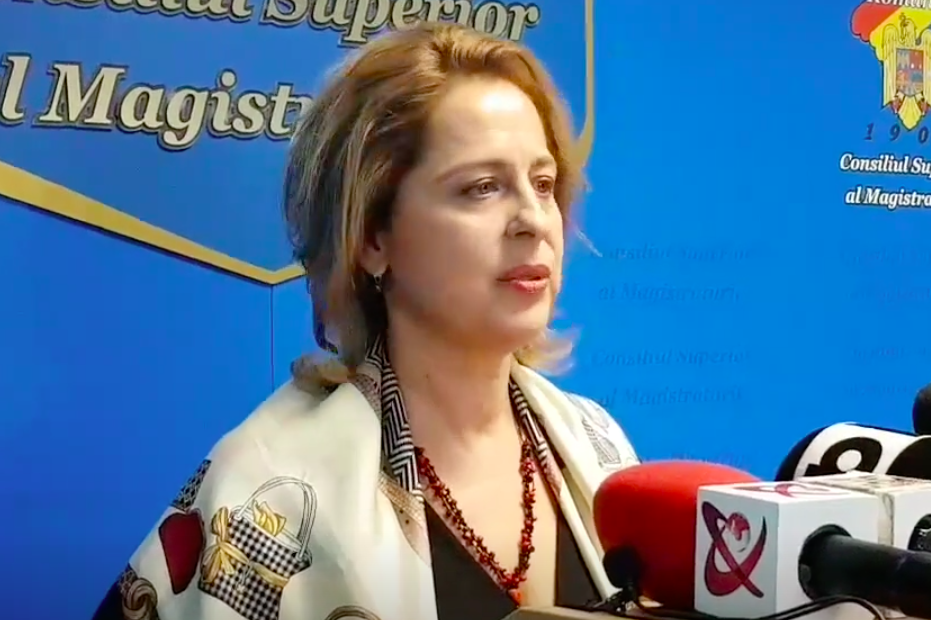 Simona Marcu – president of the Superior Council of Magistracy
Simona Marcu – president of the Superior Council of Magistracy
Simona Marcu was elected president of the Superior Council of Magistracy in January this year. She graduated from the Faculty of Law of the University of Bucharest in 1988 and was a jurist, judge at the District Court 1 and the Bucharest Tribunal, president of the department, vice president of the Bucharest Tribunal, judge at the Bucharest Court of Appeal and judge at the High Court of Cassation and Justice - Administrative and Tax Appeals Division.
Five largest Romanian companies led by women
Irina Marica, irina.marica@romania-insider.com








